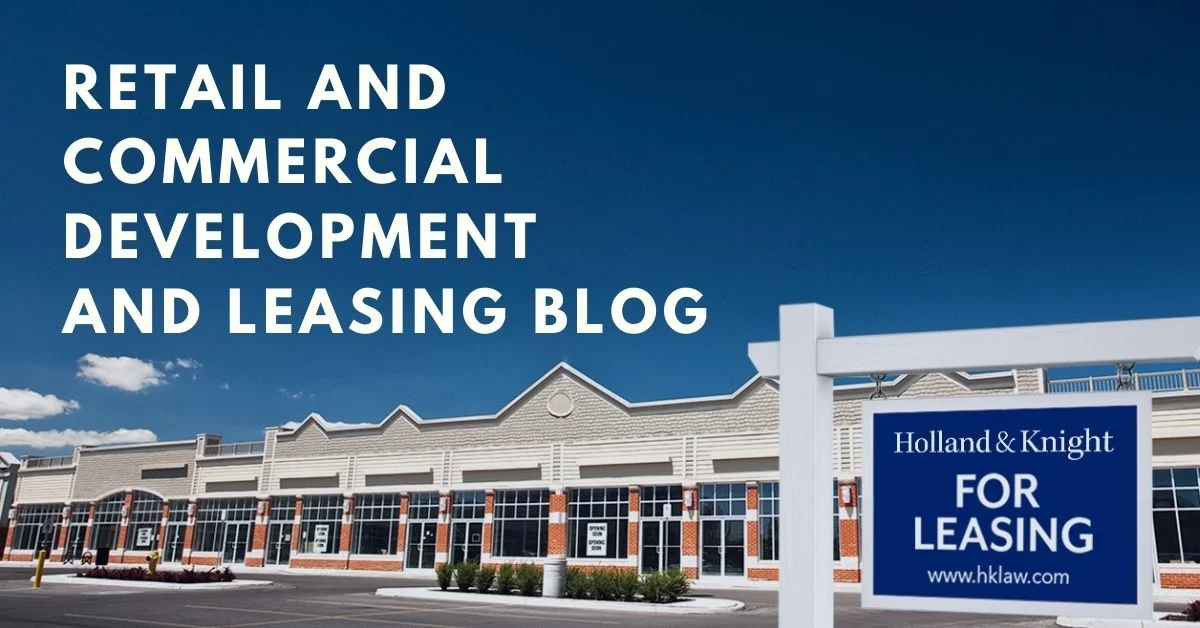Look for More Landlord Protections in Retail Deferral Agreements and Extensions

In April and May of 2020, the unprecedented challenges resulting from the COVID-19 pandemic and the related mandatory closures and restrictions on operations began to be felt by retail tenants across the United States. As a result, many retail tenants requested relief in various forms, including rent abatement, rent reductions and deferrals of rent payments. For the most part, commercial landlords worked with their retail tenants, granting some form of relief. While there were many creative compromises reached, where possible, landlords granted rent deferrals rather than rent abatement or rent reduction.
Most of the deferral agreements entered into during the early days of the COVID-19 pandemic either deferred rent to a date later in the term (allowing the tenants to get back on their feet before starting to repay the deferred rent) or extended the term, with the deferred rent to be paid during the extended period. The general assumption at the time of these early deferral agreements was that the world would "return to normal" in a couple of months.
With 2021 well underway, the world still has not returned to normal and rents that were deferred to 2021 are starting to become due. Instead of being in a position to start making the required deferral payments, the second (and maybe third) wave of deferral requests from retail tenants has begun. Although landlords are no less sympathetic now than they were 10 months ago, the reality is that many landlords also have been severely impacted by the pandemic, and additional concessions (if possible at all) are more difficult to grant. In addition, landlords are more aware of the ramifications of these deferral agreements – as are their lenders.
As a result, landlords are left with difficult decisions as new deferral requests start to come in the door (both extending the existing deferrals and requesting additional deferrals). In many instances, the landlords' lenders are stepping in and having more of a say in the agreements negotiated between landlords and their tenants.
While landlords understand that the inability of retail tenants to operate (or to operate under restrictions and limitations) limits the ability of these retail tenants to meet their rental obligations, landlords also need to evaluate their own positions (including their obligations to make loan payments, pay taxes and insurance, and maintain their properties – including the increased costs incurred to create safer retail environments) to determine their ability to provide relief. They also should both protect their rights as to any interest that may be due on any existing deferred rent and keep in mind the other concerns that have arisen, including the very real potential for subsequent tenant bankruptcies, the accounting treatment for deferred rents and possible government intervention.
Going forward, don't be surprised if new deferral agreements contain additional landlord protections, including recapture rights, agreements to shorten the time frames required to recover possession, requirements for tenants to provide personal/corporate guarantees, prohibitions on assignments and estoppel/relief language for any then-existing claims against the landlord.
